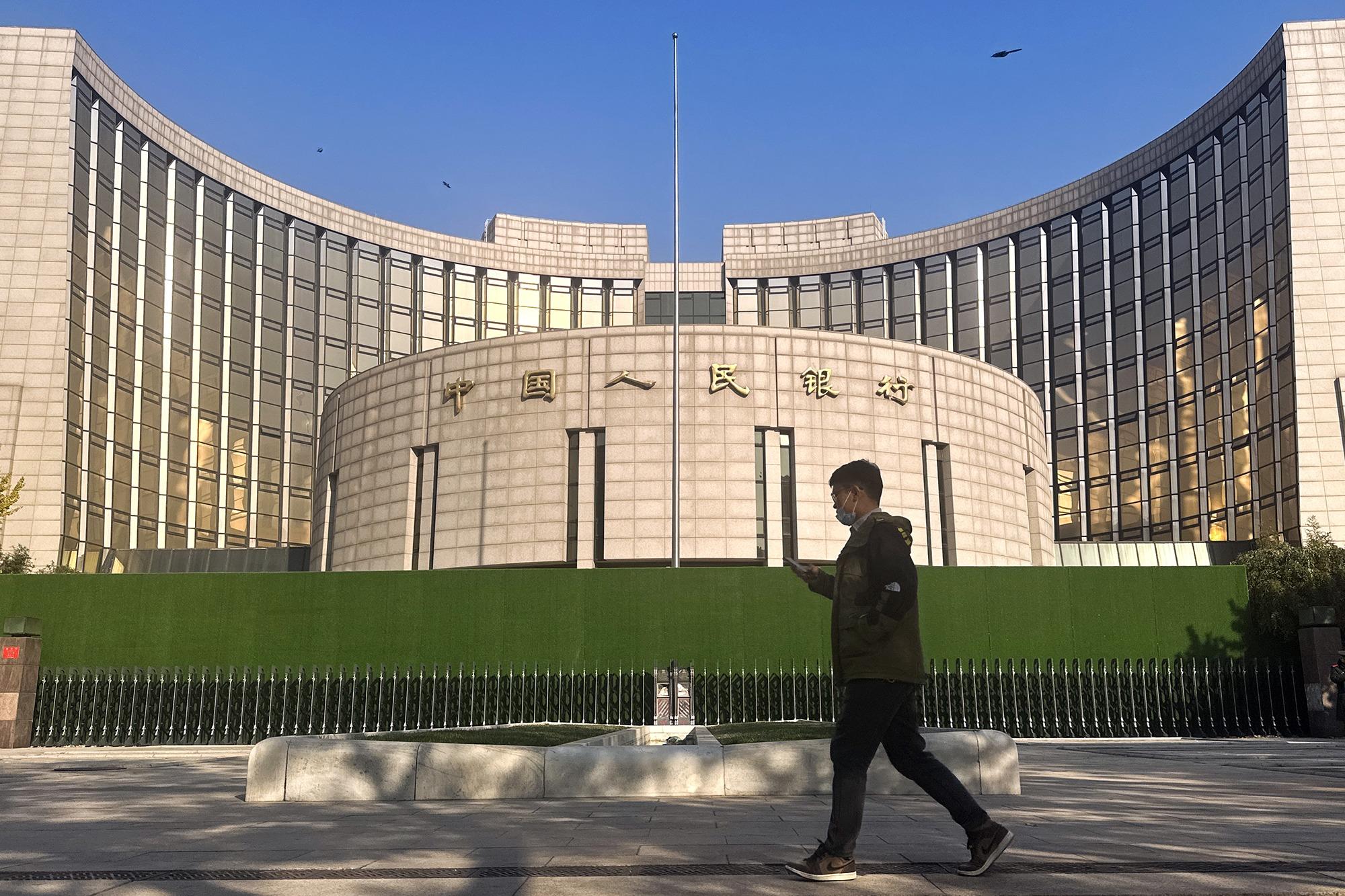Target would boost biz confidence, helping avoid risk of overinvestment
 A pedestrian walks past the People's Bank of China in Beijing on Nov 20, 2023. (PHOTO / CHINA NEWS SERVICE)
A pedestrian walks past the People's Bank of China in Beijing on Nov 20, 2023. (PHOTO / CHINA NEWS SERVICE)
China should aim for an economic expansion of "around 5 percent" for 2024, as that will help boost confidence and revive its recovery momentum, Bloomberg Economics' chief economist Tom Orlik said.
"I think a target of around 5 percent is probably sufficiently ambitious to boost confidence for businesses, and it is not too stretching so as to avoid the risk of overinvestment and over-stimulus," he told China Daily in an exclusive interview.
Orlik said China has the scope to keep monetary and fiscal policy supportive to help bolster recovery of the economy.
In the monetary realm, a further reduction in the reserve requirement ratio as well as policy rate cuts will be likely in the following months, he said.
Orlik said a forceful fiscal policy will play a bigger role in stimulating domestic demand.
The focus should be on spurring household spending and stimulating the development of emerging fields, including providing subsidies for households and increasing spending on city transport and green transition.
"I think the big remaining opportunity for China in terms of delivering stimulus is to leverage the central government's balance sheet. And that means a bigger fiscal deficit and a bigger role for fiscal policy in driving growth," he said.
Considering stronger policy support, pressure from a real estate downturn, and slowing global growth, Orlik anticipates that China's economy will expand by around 4.5 percent in 2024.
On the headwinds for the Chinese economy, he said policymakers have been doing the right thing and attempting to manage down the problem of oversupply without triggering a complete collapse in the property sector.
"In 2024, there will be enough stimulus, financing and support for homebuyers to prevent a collapse in the real estate sector," he said.
Looking ahead, he said it may take two more years of correction in the sector.
While the process may cause problems for some developers, banks and households with all or a lot of their wealth in property, China will have a real estate sector that is smaller as a share of the economy at the end of the process.
"It's more sustainable in terms of its future trajectory," Orlik said. "It also means that China will have less productive resources, capital, workers focused on the real estate sector. So there can be more focus of productive resources on areas like electric vehicles, for example, where there are very strong growth prospects."
He said booming emerging fields, such as electric vehicles, sustainable energy and high-speed railways, will offer continued growth opportunities for the Chinese economy.
More efforts should be made to steadily get through the real estate correction as well as boost confidence of entrepreneurs and global partners.
Orlik also expressed optimism about China's medium -and long-term development prospects, saying there is huge growth potential. "China's overall GDP per capita is just one-third of the level in Japan, so China is still a middle-income country. That means there's a huge amount of development space left."
Going forward, Orlik said China will remain one of the biggest contributors to global growth, creating significant opportunities around the world.


